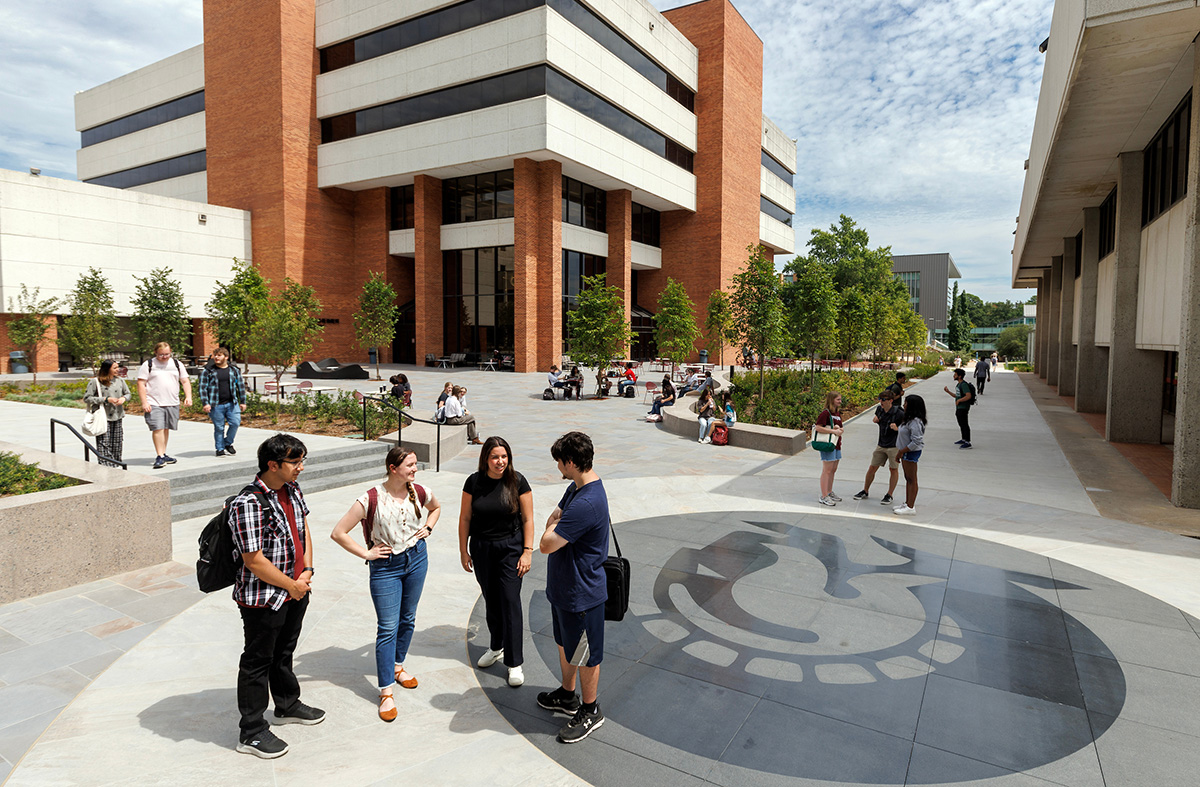Having access to quality notes is, for most students, integral to the learning process. All students are encouraged to be actively engaged with course materials and taking notes is one of the many ways that this occurs. For some students, taking handwritten notes in class presents some barriers. When this is the case, other options might be explored such as using a laptop for taking notes, using a Braille note-taking device, or recording lectures. When these solutions are not options or do not eliminate the barriers for a particular student, note-taking is provided as an accommodation. In this case, the Disability Resource Center (DRC) and course instructors should collaborate with the student to facilitate access to quality notes.
Inclusive Approach
An approach that reduces the need for note-taking as an accommodation is for professors to post notes on an accessible course website or email list. Increasing numbers of instructors are recognizing that making complete notes for each class available on line is a valuable teaching tool for a variety of students.
Instructors can choose to do one of the following:
- Post their own complete notes
- Post the complete notes of a teaching assistant
- Assign students to teams and rotate responsibility for each team to create a complete set of notes for posting each week (This approach has the added benefit of having students work in teams and share responsibility for each other’s learning.)
Accommodation Approach
If an instructor chooses not to post open notes for all students, the accommodation approach to providing notes is for a classmate to volunteer to serve as a note-taker. Letters confirming a student’s volunteer service as a note-taker are available through the DRC.
Some disabled students identify their own note-takers; others request assistance from their instructors. Collaboration between the DRC, the professor and the student helps ensure that the process goes smoothly.
Instructor Responsibilities:
- Receive faculty notification indicating that note-taking is a reasonable accommodation for students.
- Ask a specific student who has demonstrated academic skills to take notes for the student
OR provide a hard copy of the instructor notes (if these notes are extensive enough to suffice). - Protect the confidentiality of the student (that is, do not point the student out in front of the entire class).
- Facilitate a connection between the note-taker and the student(s) with a disability.
- Notify the DRC of any difficulties in locating a volunteer note-taker or with any other concerns.
Disability Resource Center Responsibilities:
- Establish eligibility for notetaking services.
- Provide student with Notetaker Flyer for instructor, Notetaker Agreement Form for note-taker, and carbonless copy paper.
- Orient student to note-taking process and note-taking options.
- Troubleshoot problems with note-taking reported by students or instructor.
- Conduct outreach to faculty who have a large enrollment of students who have note-taking as an accommodation.
- Assist instructors in identifying options for making notes available via other channels, such as:
- Posting notes on course websites or email lists
- Sharing copies of instructor or teaching assistant notes, or
- Identify one note-taker for all students with that accommodation and copying notes at Academic Department or DRC office (DRC can assist with expense).
- Prepare letters of volunteer service for note-takers by the end of each semester, upon request.
Student Responsibilities:
- Request note-taking as an accommodation during meeting with DRC staff.
- Discuss plans to use note-taking accommodations to the professor via the faculty notification as soon as possible.
- Independently locate a classmate who is willing to serve as a volunteer note-taker
OR hand-carry a class announcement to the instructor and request that he or she read it at the beginning of at least two class meetings. - Meet with the note-taker to discuss options for obtaining class notes:
- Receive notes on carbonless copy paper at end of class
- Receive notes via e-mail from the note-taker
- Make a copy of the notes at the DRC or another location on campus. (Go with note-taker or pick up notes before next class.)
- Give note-taker the Notetaker Agreement Form
- If no note-taker volunteers, contact the DRC and discuss options with the professor.
- Evaluate quality and consistency of notes. Speak to note-taker if there is a problem. If a resolution is not found, dismiss the note-taker and recruit a new one.
- Remember that notes are not a substitute for attending class. When you are in class, the student is providing you notes as an accommodation; when you miss class the student providing you with notes is a favor.
- Report any difficulties to DRC staff.
Note-Taker Responsibilities:
- Attend class on a regular basis and take comprehensive, legible notes.
- Arrange a system of exchanging notes with your classmate. Possible options include:
- Use carbonless copy paper (provided by the student) and provide notes at the end of each class
- Email notes to him or her
- Make copies at the DRC
- Suggest another system to the student to see if it works for both of you
- Follow through by providing notes following the agreed-upon arrangement.
- In collaboration with the student, determine how to handle note-taking in the event of your absence.
- Turn in Notetaker Agreement Form to the DRC at least 3 weeks prior to the end of the semester to receive letter of volunteer service.
- Talk with the student about the notes, your role, or any questions. Concerns that cannot be addressed by the student should be brought to the attention of DRC staff (501-916-3143).
- Maintain confidentiality at all times. (Do not disclose the student’s name or the nature of service being provided.)

